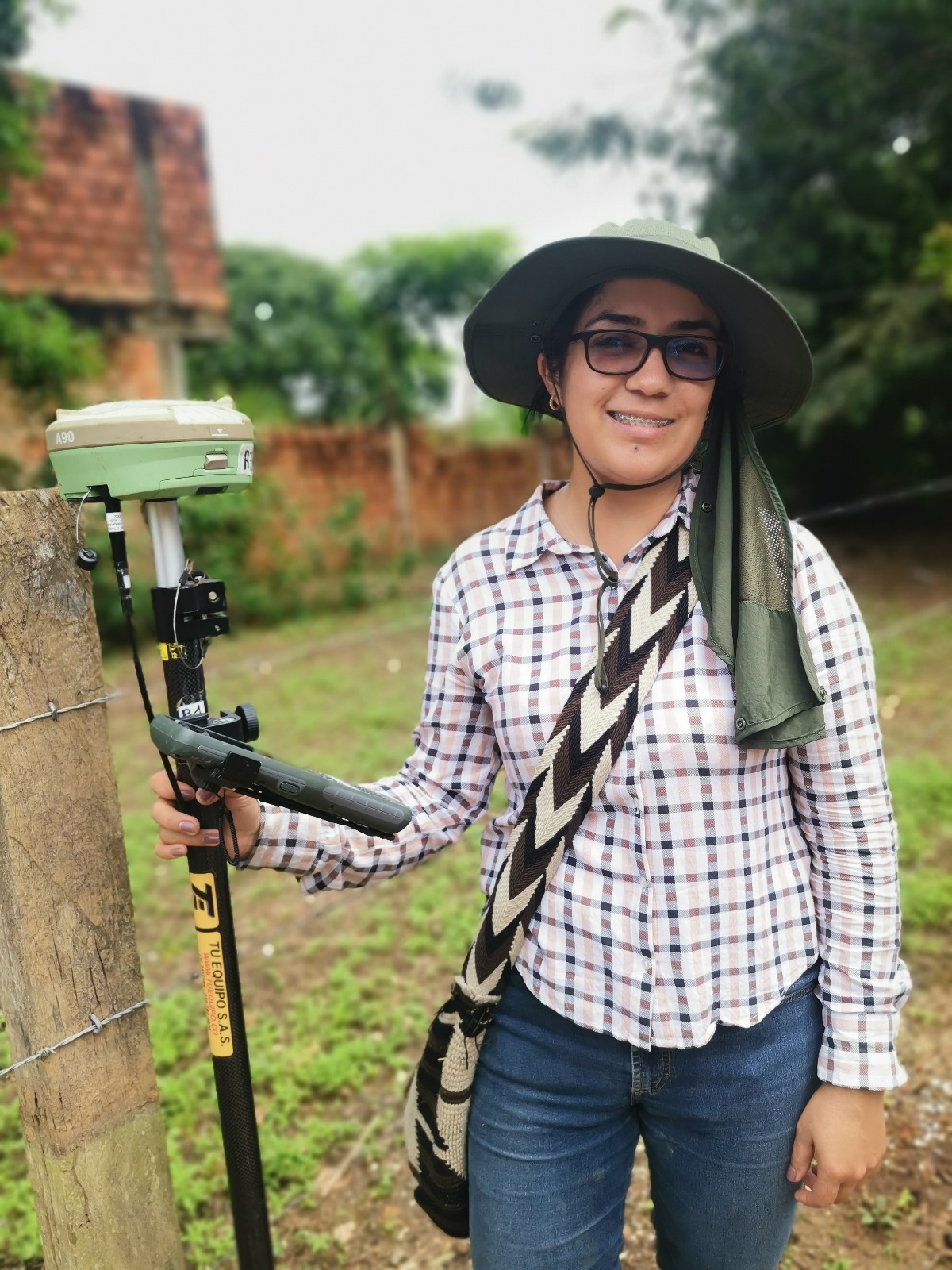.jpg?auto=webp)
Leany Alba, 28, grew up in Bogota and dreamed of being a professional photographer, but her parents never warmed up to the idea. She always loves maps and followed a career path towards becoming a cartographer. On that path, she found a burgeoning job market for her current profession: land surveyor.
For years, geographers, cartographers, and topographers were considered occupations for "strong, young men." Alba bucked the trend when she took her first job with Colombia’s Land Restitution Unit as a topographer, surveying properties that were being returned to displaced families in Meta. Though her parents had once worried about their daughter, imagining her measuring buildings on urban construction sites, they supported her decision to work in rural Colombia.
These jobs were once dominated by men, because it was much more physical. But this is nonsense. A woman can endure the high temperatures and carry equipment just like a man.
.jpg?auto=webp)
Leany Alba works in some of Meta´s most isolated municipalities, in partnership with the regional and municipal governments, surveying urban properties to make land rights a reality for thousands of Colombians.
In 2022, she accepted a job with the Meta Regional Land Office, as the only woman topographer on a team of land formalization experts who regularly travel to rural municipalities to assist small-town mayors with the titling of urban parcels.
.jpg?auto=webp)
With today’s technology, there is no excuse. Any woman can work as a land surveyor
Meta’s Regional Land Office supports municipalities like Mesetas, La Uribe and La Macarena, focusing on titling properties in the towns’ urban areas. Underfunded municipalities like Mesetas cannot afford to maintain its own land office, so the regional strategy allows it to share the costs of land titling, like labor and equipment, with a group of municipalities.
The innovative concept was first supported by USAID in the Department of Meta, and has found success in other departments like Cauca, Sucre, and Bolívar. The regional land office strategy has planted seeds for regional-level leadership in land administration and created a conduit of support for secure land rights.
.jpg?auto=webp)
At work, Leany is nearly always surrounded by men who work in land surveying.
So one of the challenges is communication with people. Women often have better communications skills, and it is necessary to have a certain tact in dealing with rural people, since almost nobody understands land.
-Leany Alba, topographer in Meta's Regional Land Office, Colombia
.jpg?auto=webp)
.jpg?auto=webp)
In a little over a year, Meta’s Regional Land Office has delivered nearly 700 urban land titles, which include 34 public properties with schools, health clinics, and municipal services like parks and recreation. The Regional Land Office has titled properties in Mesetas, La Macarena, Uribe, Vista Hermosa, San Juan de Arama, and Puerto Rico.
The Land for Prosperity program works with the Colombian Government to improve the conditions of rural households and respond to the commitments made in the 2016 Peace Accords that are related to land governance and institutional capacity .
Rural economic development in Colombia has been hindered by a lack of citizen and government clarity about land tenure and property rights. The perpetuation of informal land rights also inhibits economic growth, encourages illicit economies and activities, and facilitates illegal land appropriation.
LFP seeks to address challenges stemming from informal land rights through land titling programs, strengthening government capacities to manage land, and creating legal economic opportunities for rural community members.


